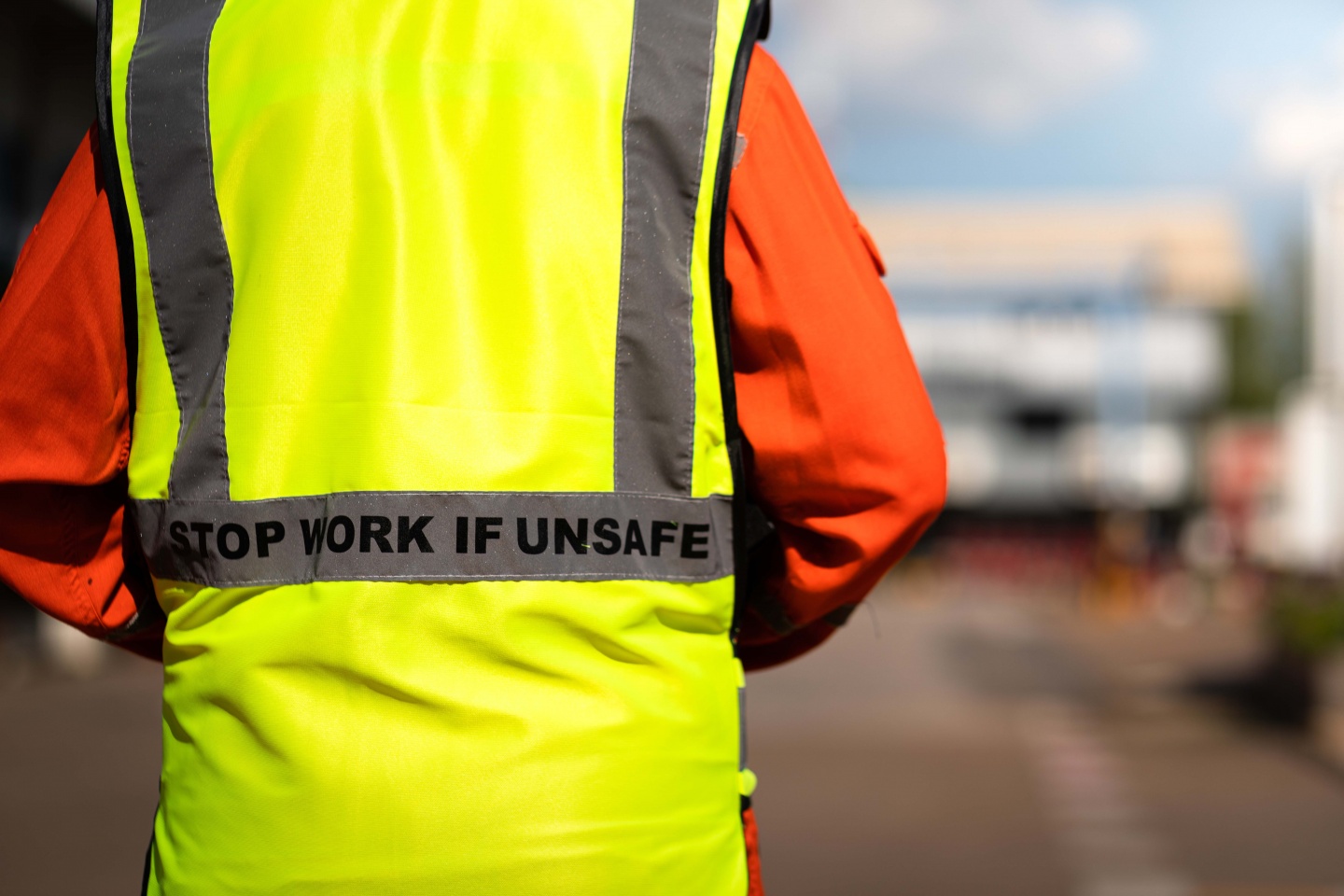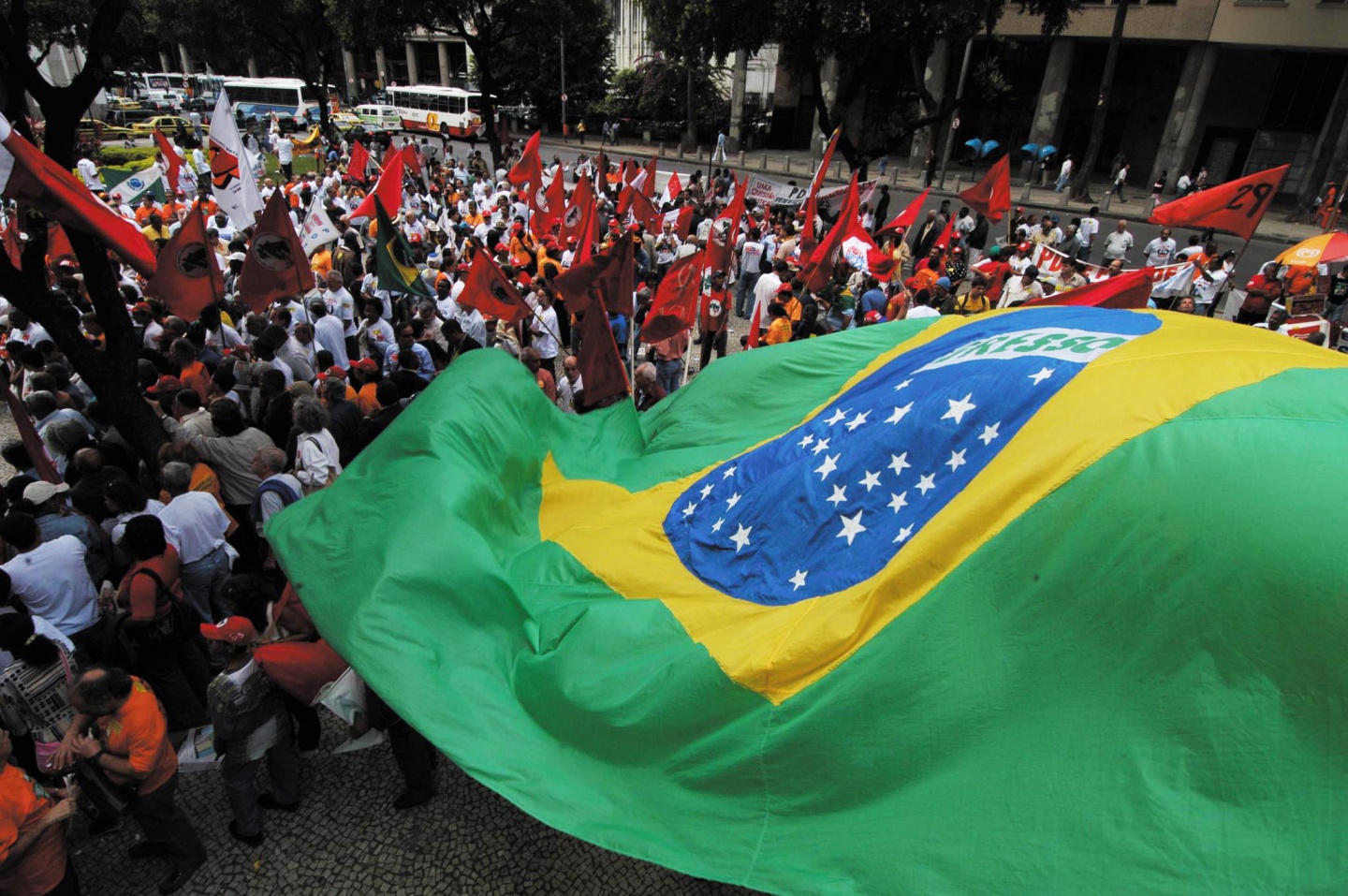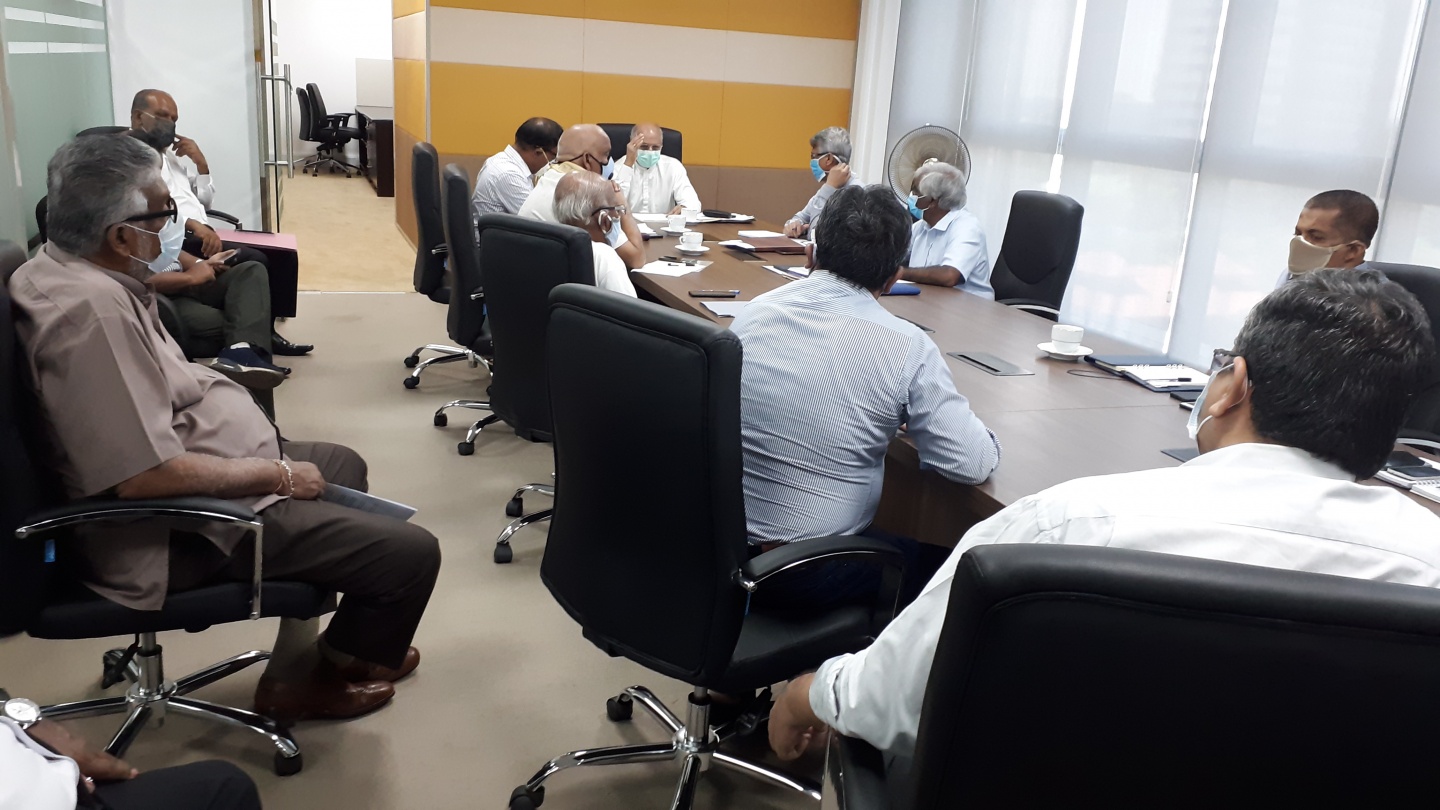16 June, 2020While governments are starting to ease lockdowns, unions around the world are negotiating the return to work. Health and safety are main priorities, and how the return to work will happen is critical for unions and workers.
Together with the UK’s Trades Union Congress (TUC), IndustriALL Global Union’s UK affiliates Unite, GMB and USDAW, stressed that
“they will not recommend a return to work for their three million members until the government and employers agree to a nationwide health and safety revolution as a result of the Covid-19 pandemic”.
In South Africa there is a clear opposition against the unsafe reopening of the mining sector as the industry targets a return back on 1 June. Union opposition has increased with the massive spread of Covid-19 of at AngloGold Ashanti’s operation in Western Gauteng. The National Union of Mineworkers (NUM) says that the mine cannot be reopened until the entire workforce has been tested.

What and how to demand
IndustriALL believes that details must be negotiated for a safe restart of production. It is not about being for or against returning to work. It depends on the spread of the disease in a country or city, the health system, whether protective measures are available for the commute, etc. Once that is in place, negotiations with the union at national, sectoral and company levels must take place to prepare a safe return to work.

Health and safety is the number one priority
IndustriALL views occupational health and safety as a matter of workers’ rights and employers’ responsibilities.
The extraordinary situation created by Covid-19 does not change these fundamentals. In fact, they are now more important than ever.
While laws and regulations vary around the world, in general employers are required to protect the health and safety of their employees. This includes providing information, education, training, and the correct equipment to do the job safely. In addition, new specific laws or regulations may have been enacted to deal with the Covid-19 outbreak. Make sure that your workplace follows all legal requirements.
Workers demand three main rights:
- Right to know about hazards at their work
- Right to refuse, or to shut down, unsafe work
- Right to participate fully in health and safety decision-making
Workers demand the right to know as fully and accurately as possible what the hazards are, and how they will be controlled. We insist on the right to participate in the decision-making on what controls will be implemented – it’s our lives. That means joint health and safety committees and trade union safety representatives must be fully involved in the design, implementation, and monitoring of all measures taken. Finally, we will assert our right to refuse to perform unhealthy or unsafe work if we have reason to believe that the controls are inadequate.
Risk assessment is certainly needed before a return to work and prevention measures must be put in place. A transparent information, consultation and negotiation process should be conducted with the full involvement of workers and their unions. Workers must be involved in the risk assessments – the only people with the moral authority to assess a risk, are those who face the risk.

Return to work
Before returning to work, each employee must receive practical and appropriate safety training on hazard and risk control, including on personal protective equipment. There should be clear protocols covering:
- How workers and third parties, like external suppliers, access the workplace
- Cleaning and disinfection of the work areas
- Personal hygiene precautions
- Collective and personal protective equipment
- Special sanitation and how to use shared spaces like canteens, smoking areas, locker rooms
- Physical and social distancing rules
Work organization plays a critical role in the return to work. Shifts, internal workplace movements, meetings, internal events and trainings can be clearly outlined. If needed, teleworking can be regulated by agreements with unions and workers.
Given the ongoing risk of Covid-19, there should be clear rules for managing workers with symptoms at work. Testing, screening and medical surveillance are necessary at the workplace. For Covid-19 cases, entitlements such as sick pay should be paid without any cuts and full health insurance must be provided.
Return-to-work plans must be gender sensitive, with special provisions to protect women from discriminatory situations.
As schools remain wholly or partially closed in many countries, it is important to ensure childcare facilities for workers.
Concerns over data privacy in the workplace must be addressed, as testing-tracking-and-tracing protocols will be an invasion of privacy.
Solutions with various alternatives for transportation to and from work should be mutually agreed upon.
There must be a genuine social dialogue for all return to work plans. If needed, expert services should be available. The role of health and safety representatives and committees must be identified in relation to the implementation and monitoring of the respect of the agreed protocols/agreements to return back to work.
Measures for workers’ mental health with a view to limit psychosocial risks related to Covid-19 should be in place.
Workers with higher medical/biological risk factors, such as pre-existing health conditions, certain prescription medications, or age, should be assessed and their needs accommodated.
Employment injury insurance schemes, or workers’ compensation, will almost certainly resist not only disease recognition, but the widespread testing and identification of Covid-19 victims and carriers necessary for safe return-to-work protocols. Unions should ask employers to support, and not oppose, any COVID-19 related claims.

How is it done?
The International Labour Organization (ILO) has published a guide for a safe and healthy return to work According to the ILO, “the determining factors in any decision to return to work must be considerations of life and health and the anticipation and mitigation of risks”. And “social dialogue is critical to ensuring effective policy design and creating the trust needed to facilitate a safe return to work”.
According to the ILO, International Labour Standards provide an adequate framework for a safe return to work, including a clear system of rights and responsibilities. The ILO guidance discusses psychosocial risks, chemical hazards, ergonomic risks etc. It also affirms the rights to know, to refuse, and to participate, and ties it into the question of decent work.
The ILO has introduced a tool on health and safety for the Latin America and Caribbean region, composed of ten steps to return to work.
The International Trade Union Confederation’s Key issues on the return to work, states that “ensuring health and safety in workplaces must be the highest priority as people return to work in many countries emerging from Covid-19 restrictions and closures”.
Italy
Three union confederations Cgil, Cisl and Uil and employer organisation Confindustria have agreed on a protocol on 24 April, according to which activities will be suspended if companies do not comply with the protocol, and local committees will be set up. The protocol considers employees of subcontracting companies, and if one of these employees tests positive for the virus, the subcontractor has to immediately inform the client company.
At the sector level, IndustriALL textile affiliates Femca-Cisl, Filctem-Cgil and Uiltec have signed a memorandum of understanding (MoU) on 2 May, with the employers to ‘prepare the ground’ for return. According to the MoU, each company has to adopt the protocol, which will thereby become a company protocol that then will have the potential to be integrated with other company specific measures. The social partners have set up a national joint committee which will operate until 30 September, with a responsibility for informing companies and workers of the protocol’s contents.
At the company level, IndustriALL affiliates FIOM-CGIL, FIM-CISL and UILM signed an agreement on 9 May with Fiat Chrysler Automobiles on how to prevent the spread of coronavirus. This will have to be applied when the government gives the green light for business to resume. The agreement guarantees maximum health safety for every worker in the group: informing employees of protective measures, new organisation of work, and workers and job protection.

IG Metall Guide
Germany
IG Metall has published a guide on how to ensure protection at production sites. It refers to seven rules to be followed, recommending three types of measures; technical, organizational and personal.
IG BCE has developed a ten point plan with recommendations for implementation, which include risk assessment for all workplaces before the return, hygiene plans, keeping vulnerable groups in mind, personal protective equipment, among others.
Spain
CC.OO. and UGT, together with representatives of employer organisations and the government, worked on how to prepare for a “de-escalation” following the relaunch of economic activities, considering the particularities of each sector. Trade unions called for a resumption of activities which guarantees the protection of workers.
The return to work is taking place with a recommendation that masks are widely used. Unions are calling for better protection for employees returning to work, especially those in contact with the public. Special protocols have been negotiated and agreed for:
Belgium
Belgian trade unions and employers agreed on a framework to handle the return to work in non-essential sectors on 22 April. The guide sets out best practices for ensuring safe workplaces and contains concrete preventive measures as regards safety, health, and hygiene instructions. It is intended to serve as a basis upon which the sector joint committees (where branch agreements are negotiated) can draw when formulating their own specifically tailored sector protocols.
At the sectoral level, trade unions in metal and technology sector signed an agreement for resumption of work. The agreement is designed to complement the national level guidance to tackle the spread of the coronavirus in the workplace. The agreement reasserts the importance of social dialogue and communication between the parties and emphasizes the necessity of involvement by workers and their representatives.
There are similar guides and recommendations for other sectors.
USA
IndustriALL affiliate United Autoworkers’ Union (UAW) reached an agreement with General Motors, Fiat Chrysler and Ford Motor to reopen workplaces. The UAW negotiated to ensure enhanced safety measures are taken at each facility in accordance with the Centers for Disease Control and Prevention guidelines for employers.
The agreement details the necessary precautions including staggered shifts, regular hand washing, social distancing, temperature measurement, the wearing of masks, etc.
The UAW continues to actively monitor and respond to issues impacting the health and safety of UAW members as they return to the worksite. The UAW also pushed for expanded coronavirus testing at present, and full testing as soon as available, to ensure fewer exposures to the virus at the worksite.

Brazil demo
Brazil
Unions from various sectors have managed to get companies to put in place health and safety measures to fight the spread of Covid-19 in the workplace and immediately allow at-risk workers to stay off site. The agreements also provide compulsory paid leave and temporary job security, keep economic benefits in place, and require any measures taken by companies to be approved by workers through a vote or a union assessment.

Type your caption
Sri Lanka
The government of Sri Lanka established a Covid-19 tripartite taskforce aiming to safeguard the interests of workers and employers through social dialogue. The taskforce reached an agreement applicable to all sectors, ensuring payment of wages and employment within the existing legal framework. Members of the taskforce agreed that workers will continue to be employed and will not be retrenched from work due to Covid-19 lockdown measures. All employees will be deployed at work and allotted equal number of shifts through rotation. This will protect workers’ interests while respecting health and safety measures like social distancing.

Turkey
Turkey
Birlesik Metal-Is (United Metalworkers’ Union) has prepared a Covid-19 guide, aiming to create awareness of employer and worker responsibilities and ensuring adequate measures are taken in the workplace. Workplace level health and safety committees and representatives are tasked to strictly follow the implementation of the guide.
Textile and garment union Oz Iplik-Is has drafted template protocols to be signed with employers on health and safety measures in the workplaces undertaken by the employer. The template protocol also puts forward legislative regulations related to the implementation of measures.
